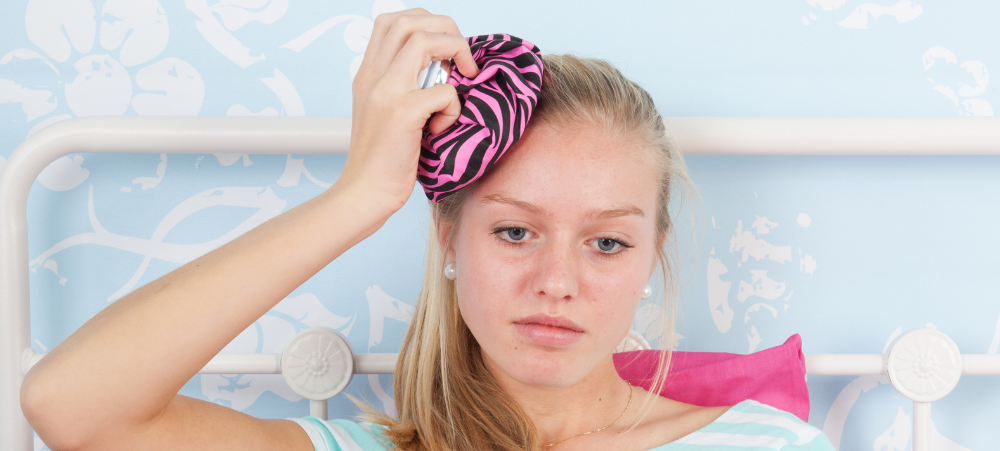Stress has a dire impact on the quality of modern life, and this is sometimes amplified in a teenager’s life. Often pressures from school, home, friends, and physical changes during this highly self-aware period can lead to anxiety and the latest research also suggests it can even have an impact on the frequency of headaches teenagers get.
A recent study, published in Paediatric Neurology, aimed to describe the relationship between risk factors, such as stress, depression and anxiety, and potentially protective factors against paediatric headache-related disability. It found that stress is “the strongest risk factor for headache-related disability”.
The study was a cross-sectional survey among adolescents seen in an academic neurology clinic, who were reporting four or more headaches monthly. Among the 29 participants, the average age was
14.8 years with a ratio of 31% male and 69% female. The average headache frequency was 11.6 per month and the most commonly reported trigger was stress (86% of the participants reported stress).
Headache disability was assessed using the six-item Headache Impact Test (HIT-6) (which is a validated assessment of the functional impact of headaches for both migraine and TTH in adults and has been used in adolescent as well as adult headache populations).
Reducing headaches, reducing depression
“Depression is a well-known predictor of moderate to severe headache-related disability among adolescents,” says Dr. Elliot Shevel, South Africa’s migraine surgery pioneer and the medical director of The Headache Clinic, “but contrary to the belief of many doctors, depression does not cause headaches, it is in fact the other way around. A headache attack alters the sufferer’s mood due to the pain, and constant pain is one of the most important causes of depression. Therefore chronic headache and migraine pain is often a major contributor to chronic depression.”
“Another study has shown that adolescents who missed more school due to headache had higher depression scores and lower academic performance than students who missed less school.”
According to Shevel the most effective way to reduce the depression linked to headaches is to find the cause of the pain and treat that. “If you get rid of the pain, the depression in most cases will become less or go away.”
He adds that it is important to differentiate between stress and depression. In this case stress can result in headaches, which then in turn can result in depression. “Stress is one of the biggest triggers for headaches as stress causes muscle tension, and muscle tension is one of the primary causes of headache pain. Although its advised, its usually hard to avoid stress (which is the trigger), so at least the muscle tension (which is the underlying cause) can be safely and effectively treated.”
He has been instrumental in advancing classification, diagnosis and most importantly treatment of the underlying causes of migraine, cluster, hemiplegic migraine, tension-type, and many other kinds of primary headache.
- Children’s Nightmares and Snoring Can Lead to Headaches - April 14, 2022
- Pregnancy and Migraine - February 26, 2019
- Understanding Migraine Triggers - February 21, 2019





